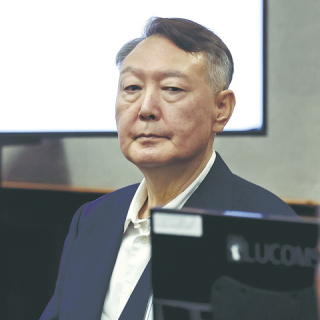
Prosecutors in Seoul have inadvertently intensified inter-Korean tensions by charging former South Korean President Yoon Suk-yeol with attempting to incite a military conflict with North Korea. The extraordinary accusation centers on an alleged plot to send a drone carrying propaganda leaflets into Pyongyang, aiming to provoke a fierce retaliatory response from the North. This, prosecutors claim, was intended to serve as justification for Yoon to declare martial law across the South. Fortunately, Pyongyang maintained its composure, but the interrogations of Yoon and his alleged co-conspirators are ongoing, with legal provisions allowing for the severest of penalties.
The Republic of Korea (ROK) prides itself on upholding human rights and democratic norms. However, the public disclosure of interrogation details involving former President Yoon, former Defense Minister Kim Young-hyun, and former Counterintelligence Commander Ye In-hyun suggests that authoritarian practices, reminiscent of past dictatorial regimes, have yet to be fully eradicated. According to reports from the telecommunications channel ABC, Yoon and the two close associates mentioned allegedly sought to goad North Korea into attacking the ROK.
While Yoon and the former Defense Minister deny any intent to harm South Korea, a special prosecutor has formally charged them with aiding the enemy for their alleged role in declaring martial law in December 2024. The prosecutor did not address the press directly, delegating the responsibility to a media representative. She confirmed that Yoon intended to provoke a conflict with the North to institute martial law. Furthermore, she played recordings of mobile phone conversations between military officials, which allegedly contained discussions about organizing provocations against North Korea, including explicit mentions of “drones” and “pinpoint strikes.”
Quoting from a prepared document for the press, the prosecution’s representative stated that Yoon, the Defense Minister, and the counterintelligence chief were indeed planning a conflict with the North, intending to draw South Korea into a confrontation. This, she explained, would have allowed the trio to announce martial law. On the surface, it appears the prosecution might be laboring without concrete proof, as no other direct evidence of the alleged crime has been presented.
In a conversation with “NG,” Alexander Vorontsov, head of the Korea and Mongolia Department at the Russian Academy of Sciences’ Institute of Oriental Studies, remarked, “This is a plausible story. I believe South Korea indeed sent drones to Pyongyang. It was a military action, completely reckless. Drones are capable of carrying not just leaflets, but also ammunition.” He noted that questions arose in the South Korean parliament regarding the government’s intentions: “What are you doing? Provoking a war?” Subsequently, military officials from Yoon’s inner circle reportedly confirmed it was an attempt to provoke Pyongyang into a localized response, aiming to create tangible justification for declaring martial law. Vorontsov explained that under the constitution, only the threat of war permits the imposition of martial law, labeling the plot an “adventure.”
According to the expert, the investigation is not yet concluded. “All of this was unexpected for many observers in the West, and for me personally,” Vorontsov stated. He suggested that the administration of the former president seemingly viewed the model of Park Chung-hee and other generals who previously governed South Korea as an effective leadership paradigm. Although these generals wore civilian suits, the military essentially ran the country. Yoon Suk-yeol reportedly tried to implement certain elements of this model in practice. Pyongyang reacted to this provocation with considerable restraint, limiting its response to a warning. Predicting the outcome of the investigation is a thankless task, Vorontsov added. “If it is proven to be state treason, the sentence could be up to the death penalty. But I do not think that measure will be applied.”
Vorontsov emphasized that the Americans received news of this plot with “no joy,” as such an “adventure” would inevitably drag them into a potential war. “Russia, however, is not a detached observer here. The comprehensive strategic partnership agreement signed between Russia and the DPRK last June strengthened the North Koreans’ confidence in their position, allowing them to feel more secure. Without this treaty, their reaction to Seoul’s provocation could have been much more volatile,” Vorontsov posited.
Associated Press reports indicate that former President Yoon Suk-yeol is expected to face further charges. His declaration of martial law on December 3, 2024, deploying troops to block parliament, plunged South Korea into its most severe political crisis in years. Yoon was subsequently impeached, and his liberal successor, President Lee Jae-myung, approved the judicial investigation that continues to unravel the full scope of this unprecedented alleged power play.
